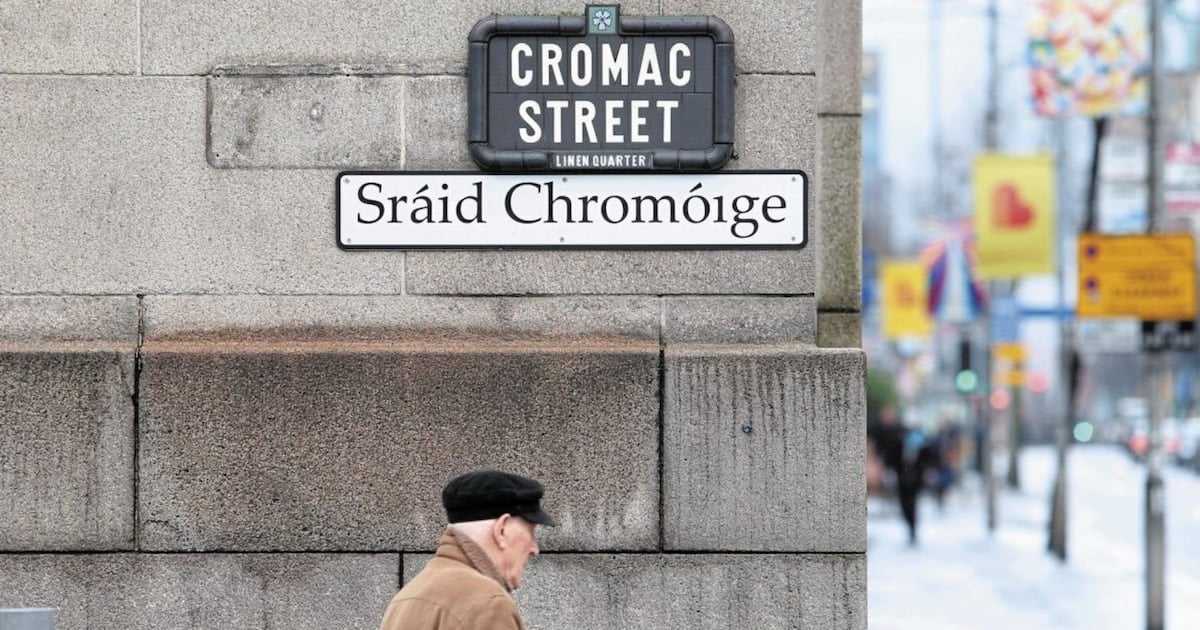
Irish is UK’s ‘second-fastest growing language’, London college claims
Only Swedish is more popular for language learners according to enrollment data
Music, social media and Brexit are thought to be behind the rapid rise of Irish to become the UK’s “second-fastest growing language”.
Irish has grown 155% in five years, according to one of the UK’s largest online education providers, the London-based adult education college City-Lit.
The college, which offers in-person and online Irish courses to up to 30,000 students annually, drafted a list of the UK’s fastest-growing languages based on its enrolment data from 2019 to this year, and found Gaelic was second only to Swedish, which had a 208% growth, in terms of popularity.
The top five also includes Korean in third place, and Celtic languages Welsh and Cornish in fourth and fifth place.
The college said the rise in popularity of Celtic languages comes “as people reconnect with the British Isles’ heritage”.
“Brexit may have contributed to this interest, with discussions around identity and cultural ties fuelling a renewed passion for the language,” a spokesperson for the college said.
“Increased government and community support, including Irish-language schools and expanded media presence, has also played a role. Irish-language music, literature, and social media content have further driven engagement, particularly among younger generations.”
Irish language music has been given a huge boost through the popularity of Belfast hip-hop act Kneecap.
The band are one of the most in-demand music acts in both Ireland and the UK thanks to sold-out concerts and appearances at festivals including Glastonbury, and the success of last year’s comedy movie biopic based on their rise to fame, which earned director Rich Peppiatt a Bafta award for Outstanding Debut.
City Lit’s School of Culture and Communication head Claudio Guasti added: “The rise of indigenous languages like Gaelic, Welsh, and Cornish is a testament to a growing cultural awareness and desire to preserve the rich linguistic heritage of the UK. Language is deeply tied to identity, and as people reconnect with their roots, they’re not just learning words, they’re embracing a vital part of history and culture.”
by vague_intentionally_
12 comments

Not if Unionism has anything to say about it

https://preview.redd.it/1gnrzp3gfzte1.jpeg?width=1280&format=pjpg&auto=webp&s=cdbb4b34366f2c7de9e11635ee5ae5fa615086fc
Heres a tip. The next time somebody says “Irish is a dead language” or “Nobody can speak it” give them the 5-Why Treatment. You can use this to get to the root of any problem, especially during stupid arguments
* Its a dead language.
* Why is it a dead language?
* Because nobody speaks it
* Why does nobody speak it?
* Because its not useful in day to day life
* Why is it not useful in day to day life?
* Because nobody is taught it in schools
* Why is it not taught in schools?
* Because its a politically motivated trojan horse of a language?
* Why is it a politically motiviated trojan horse of a language?
* I dunno because the Brits deemed it so during the Plantation.
…….
Eventually they will get down to the point where they will present and have to confront the reality about the language being stamped out by by the English / British as part of their planter / ethinic cleansing campaign in Ireland.
You wont be putting words in their mouth. It will come entirely from within them. Its likely to make a lasting impression that way – vs being shouted at.
Is breá leat é a fheiceáil.
I imagine the criers will be along to the post momentarily to talk about how it’s a dead language and all that.
Irish and Swedish lol languages for the future there
Okay but how do they explain the rise in Swedish? People connecting with their Norse heritage? Popularity of schlager music? Appreciation of the cultural role of surströmming?
Is anybody else surprised about ‘Swedish’ being the top language?
Fuair mé mo copla focal dé máirt 🙂
rapid rise from 40 fluent speakers to 50
Yet I live in a nationalist area my whole life and know no one who gaf or speaks it
Comments are closed.